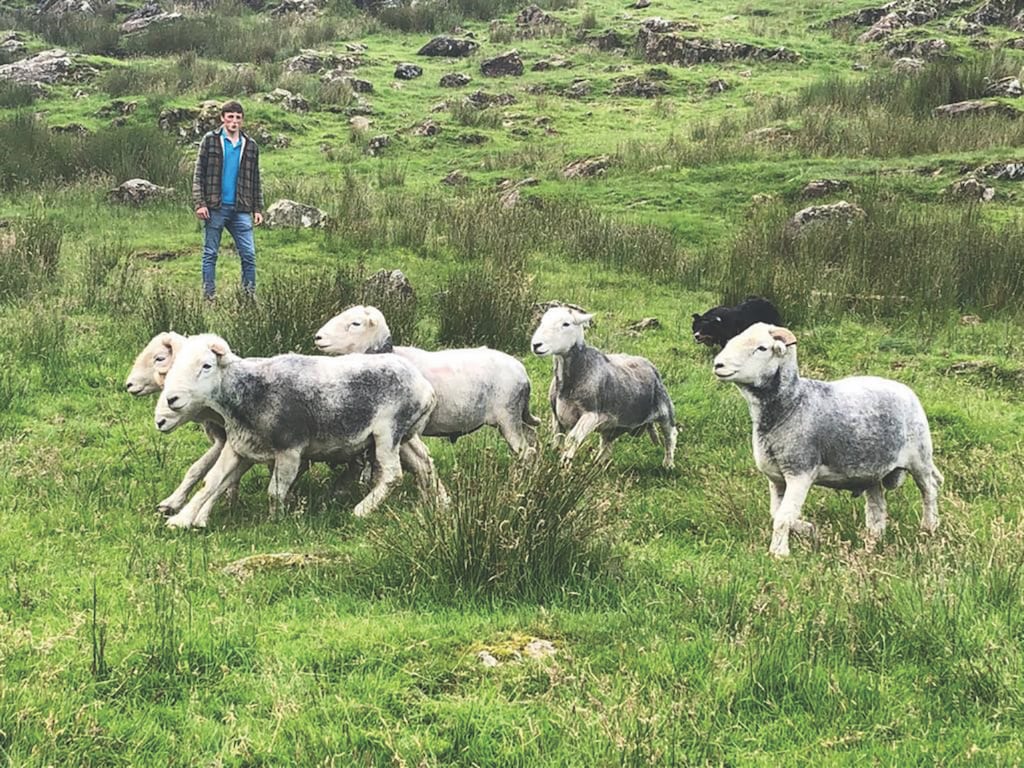
A talented young Cumbrian shepherd is settling into a job which is helping to safeguard the culture, heritage and environment of one of Britain’s best loved landscapes.
Matthew Fearon, aged 21, from Borrowdale, is employing age-old hill farming methods as he looks after two hefted flocks of traditional Herdwick sheep in the Thirlmere Valley.
Since he was appointed to the role last year by landlord United Utilities, Matthew and his dogs have been managing around 550 animals across 4,000 acres of upland on either side of Thirlmere reservoir, including the summit of Helvellyn and Ullscarf Fell — some of the toughest farming terrain in the UK.
More than 50 shepherds across the North expressed an interest in the job, which was advertised after the previous tenant decided to buy his own farm in another part of the county.
An expert interview panel, representing farming, Herdwick and water company experts, selected Matthew from a final shortlist of five.
Land agent at United Utilities’ Thirlmere estate Caroline Holden said that from a very strong field of applicants Matthew stood out.
“We’re really pleased to have Matthew on board,” she said.
“He comes from an extremely well respected farming family in Borrowdale, he understands the pressures of upland hill farming, including working with other shepherds to gather the commons together, he has a lot of technical ability and some really good ideas.”
Matthew has competed for England in international sheepdog trials and won the National Sheep Association’s Next Generation Shepherd competition in 2019 for the northern region with his collies Maddie, Tim and Jill.
“This is a really good opportunity for a shepherd my age. You don’t get many jobs which demand hefting on the fell. Although, it’s smaller than some fell farming flocks, the number of animals means I can spend more time with them helping improve the grassland.
“I have been farming since I was small. It’s pretty cold and windy sometimes but on a nice day it’s great. I enjoying working with the dogs and with Herdwicks and I’ll be combining new ideas with centuries old techniques.
“Herdwicks are very hardy and are notoriously bad for escaping so it will be hard work. Because they are often so isolated, one of the important things will be to protect the gene pool and keep the gene pool as wide as possible,” he said.
United Utilities catchment manager Paul Philips said shepherding was an essential trade, and could be one way of helping safeguard landscapes from the impact of climate change.
“We saw the effects of torrential rain on bare landscapes here in the Thirlmere Valley in 2015, when the A591 was swept away by landslides in Storm Desmond,” she said.
“Traditional hill farming is part of Cumbria’s heritage and must be protected. Combining good old-fashioned shepherding with new native woodland and re-vegetation does this while also creating more resilience to floods, greater biodiversity and better quality water.
“The number of sheep in Matthew’s flock matches the density Natural England believes will help the land return to good ecological status, based on science. We’ve had a great first year and we can see that vegetation is already starting to recover in parts of the valley.
“With Matthew’s help the valley could become a centre of excellence for water protection and biodiversity and, in time, we’re hoping to create a demonstration site where we can share Matthew’s expertise and our experience with other partners and organisations.”








